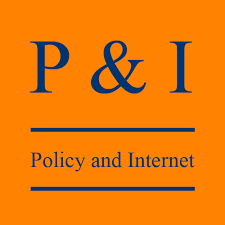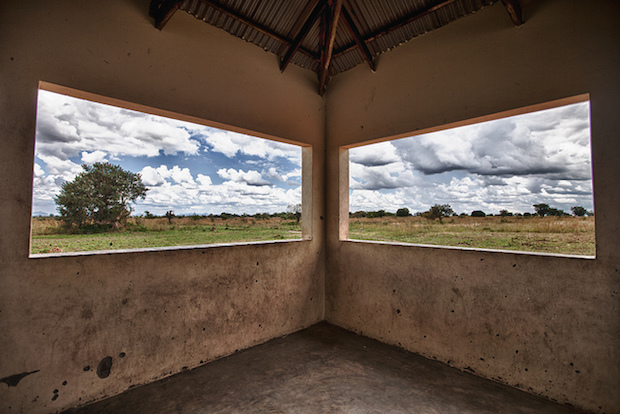Full papers will be listed here as we receive them. IPP2018 attendees are listed in bold. The deadline to submit to the conference special issue is 29 October 2018.
Track A: Citizens, Politics and Government
A1: Campaigning I [Thurs 11:00-12:30, SR7]
Itzel González Sandoval: Elections: In Between the Certainty of Old Practices and the Chaos of New Technologies. Analyzing Online Campaigns with Text Mining
Chen Sabag Ben-Porat: Social Network Usage Patterns of Parliamentary Assistants as Stand-Ins for their Legislator in Israel, Germany, and the U.S. – and the Public’s Attitudes to this in Israel
Ksenia Tsyganova, Dmitri Tsyganov: Online pre-election campaign by likes and polls
A2: Campaigning II: Targetting and Persuasion [Thurs 13:30-15:00, SR7]
Tom Dobber: The Effects of Political Microtargeting
Simon Kruschinski, André Haller: Data-Driven Discrimination? An empirical analysis of political micro-targeting’s promises and concerns for political parties, the electorate and public discourse
Martin Glick: Changing Political Views With Adaptive A.I.
A3: Campaigning III: Political Bots [Thurs 15:30-17:00, SR7]
Rose Marie Santini, Debora G. Salles, Giulia Tucci, Charbelly Estrella, Carlos Eduardo Barros, Danilo Carvalho, Camyla Terra, Daniela Orofino, Kenzo Seto: Online impersonators: who are they and what do they do? A bot ethnography on Rio de Janeiro’s 2016 municipal elections
Olga Boichak, Sam Jackson, Jeff Hemsley, Rebekah Tromble and Sikana Tanupabrungsun: Bot Interventions: Identifying Patterns of Orchestrated Activity Across Election Campaigns on Twitter
Valeriya Vasilkova, Natalya Legostaeva, Vladimir Radushevskii: Botnets as an election campaign tool: a methodology for identification and analysis of network publication activity
A4: Politicians and Citizens [Thurs 17:10-18:45, SR7]
Nikki Soo: MPs and the Potential for Democratic Renewal in Digital Constituency Life
Sharon Haleva-Amir: On Politicians, Citizens and Words in between: The Illusion of Equalized Discourse on the Facebook Platform
George Boynton, Glenn Richardson: Political Leadership Emerging in the Twitter Communication Stream [Part 1, Part 2]
A5: Citizenship and Participation [Friday 09:00-10:30, SR7]
Erhardt Graeff: The Need for Empowerment-based Design in Civic Technology
Louise Jørring, António Valentim, Pablo Porten-Cheé: Mapping the Field: A Literature Review on Digital Citizenship
Guy Paltieli: What Does Political Participation Mean?
Prodromos Tsiavos, Theodoros Karounos, Petros Stefaneas: (Un)learning from Athens: Architectures of e-Democracy in the European Global South
A6: Government and Citizens I (Platforms) [Friday 11:00-12:30, SR7]
Tobias Escher, Bastian Rottinghaus: Local government platforms for citizen participation and their effects on legitimacy: evidence from a comparative case study in Germany
Daria Gritsenko: Is “Government as a Platform” democratic by design? The case of the Active Citizen Platform in Moscow, Russia
Han-Teng Liao: The role of platform in China’s consultative style of governance: A meta-analysis of the role of Internet platforms
A7: Government and Citizens II [Friday 14:40-16:10, SR7]
Bernd Firuz Kramer: Via app from survey to decision? The case of Tübingen and why it could change democratic theory
Nic DePaula, Teresa Harrison: The EPA under the Obama and Trump administrations: Using LDA topic modeling to discover themes, issues and policy agendas on Twitter
Martin Karlsson, Magnus Adenskog, Joachim Åström: Political scandal, online participation and the rebuilding of institutional legitimacy: The case of the Estonian Citizens’ Assembly
A8: Citizen (Dis)Engagement [Friday 16:30-18:00, SR7]
Neil McNulty: The Internet’s Role in the Recent Revival of the SNP and Labour Party
Francesca Vassallo: The Power of the Internet? Millennials, Baby Boomers and Voting in Europe
Francesco Bailo: Internet-mediated recruitment networks of political movements: Empirical and theoretical approach
Morihiro Ogasahara, Shoko Kiyohara: Did Japanese voters change their passive attitude toward Internet election campaigns? The 2017 Japanese Lower House election
Track B: The Information Environment
B1: Journalism I [Thurs 11:00-12:30, TLT]
Antonello Bocchino: Middle Class Crisis and the “Sharing Industries” as the Main Flywheels of the Produsage of Post-truth Political Communication on Social Media
Fabian Falck, Julian Marstaller, Niklas Stoehr, Soeren Maucher, Jeana Ren, Andreas Thalhammer, Achim Rettinger, Rudi Studer: Sentiment Political Compass: A Data-driven Analysis of Online Newspapers regarding Political Orientation
Andrew Ross, Delia Dumitrescu: “Vox Twitterati”: Investigating the Effects of Social Media Exemplars in Online News Articles
B2: Journalism II: News Values [Thurs 13:30-15:00, TLT]
Pihla Toivanen, Matti Nelimarkka: Populist counter media and media ecology: sources cited in MV media
Andrew Chadwick, Cristian Vaccari, Ben O’Loughlin: Do Tabloids Poison the Well of Social Media? Explaining Democratically Dysfunctional News Sharing
Helena Chmielewska-Szlajfer: Politics in online tabloids: searching for values in the voices of writers and commenters in the US, UK and Poland
B3: Journalism III: Fake News [Thurs 15:30-17:00, TLT]
Ana Azurmendi: Is Journalism still the “watchdog” of democracy? The European Court of Human Rights facing fake news in Social Media
Chamil Rathnayake: Conceptualizing Satirical Fakes as a New Media Genre: An Attempt to Legitimize “Post-Truth Journalism”
Linda Monsees: Fake News and the Future of Democratic Politics – Insights from Germany
Ahmed Al-Rawi, Jacob Groshek, Li Zhang: What the fake? Assessing the extent of networked political spamming and bots in the propagation of #fakenews on Twitter
B4: Post-Truth Politics [Thurs 17:10-18:45, TLT]
Tricia Jenkins, Katie Kovarik, Addyson Jackson: The Russian Disinformation Dystopia: A Look at the 2018 US Presidential Election
Niki Cheong: Of Troops and (Astro)Turf: The Malaysian Case
Krishan Kuruppu: Social media and Security: Digital securitisation in a post-truth society
Michael Jensen: Fake News and Social Media: The Communication Strategies of Russian Trolls
B5: Unsocial Media II: Radicalization [Friday 09:00-10:30, TLT]
Margeret Hall, Michael Logan, Sam Church, Gina Ligon and Doug Derrick: Computational Identification of Latent Radical Content from Online Social Media
Matthew Crosston: Virtual Democracy and Jihadi Johns: Cognitive Disconnects and CVE Propaganda
Dilshod Achilov, Ismail Budak Arpinar, Ugur Kursuncu: Using Semantic Analysis in Deconstructing Terrorist Propaganda Wars Online
B6: Unsocial Media III: Self-Censorship [Friday 11:00-12:30, TLT]
Elizabeth Dubois, Julia Szwarc: Self-censorship, Polarization, and the “Spiral of Silence” on Social Media
Chloé Nurik: “Men are Scum”: Self-regulation, hate speech, and gender-based censorship on Facebook
Ying Miao: Protest to Populism: Managing Digital Dissent in China
B7: Social Media Regulation I [Friday 14:40-16:10, TLT]
Stefan Theil: Freedom of Expression on Social Media: Conceptual and Regulatory Challenges in Europe and the US
Erik Bean: Industrial Age Advertising Solutions for a 21st Century Social Network Driven World
Robert Wentrup, Efrat Daskal, Dan Shefet: Taming the internet trolls with an internet ombudsman
B8: Social Media Regulation II [Friday 16:30-18:00, TLT]
Martin Johannes Riedl: Holding Platforms Accountable: Content Moderation, Logan Paul, and Good Old Pathetic Dot
Urbano Reviglio: The Daily Us: Legitimizing Public Service Media in the Age of Personalized and Commercialized Social Media
Track C: Fragments, Groups and Collectives
C1: What is Democracy? [Thurs 11:00-12:30, SR8]
Tatiana Shulga-Morskaya: Electronic Democracy: a Concept Under Construction
Dannica Fleuss, Gary Schaal: Dystopia, Utopia, Realism? Epistemological Problems of a Valid Evaluation of Democratic Performance in a Digitalized World and How to Address Them
Philip Dingeldey: The next Wave away from Democracy
C2: Polarization [Thurs 13:30-15:00, SR8]
Juan Carlos Medina Serrano, Morteza Shahrazaye, Orestis Papakyriakopoulos, Simon Hegelich: The Rise of the AfD: A Social Media Analysis
Ivo Furman, Aslı Tunç: How much engagement creates echo chambers? A network approach to studying political polarisation on Twitter during the 2017 Turkish Constitutional Referendum
Nahema Marchal, David Watson: Affective Polarisation, Internet and Social Media Use in the UK
C3: Populism and Protest [Thurs 15:30-17:00, SR8]
Susana Salgado: Policy discussion in online media: A comparison between Portugal and Spain
Nick Yin Zhang, Yunya Song: The Role of Social Media in Political Campaigns: A Sentiment and Engagement Analysis of Political News Posts and Facebook Comments in Three Political Events in Hong Kong
Bushra Ferdous Khan, Abu Mohammad Shabbir Khan: Protecting the Environment from Populism: Policy Implications Drawn from Sentiment Analysis of Trump Supporters’ Tweets
C4: Unsocial Media I: The Far-Right [Thurs 17:10-18:45, SR8]
Salla-Maaria Laaksonen, Gavan Titley, Mervi Pantti: Broadcast Ourselves: the politics, channels, genres and brands of Finnish anti-immigration movements on YouTube
Curd Knüpfer, Matthias Hoffmann, Vadim Voskresenskii: Hijacking MeToo: Transnational dynamics of digital networks on the far-right and the case of the “120 decibels” campaign
Annett Heft, Eva Mayerhöffer, Susanne Reinhardt, Curd Knüpfer: Transnational nationalism? Comparing right-wing digital news infrastructures in Western Democracies
C5: Building Dialogue I [Friday 09:00-10:30, SR8]
Nathan Beard, Graeme Troxell, Casey Fiesler: 21st Century Digital Democracy Needs a New Contract
Gayani Hurulle, Helani Galpaya, Azamat Ababakirov: Engagement in online discourse on the line in Myanmar?
Rainer Freudenthaler, Hartmut Wessler: Accomodating pluralistic conflict in online (counter-) publics – a multiperspectival normative assessment approach
C6: Building Dialogue II [Friday 11:00-12:30, SR8]
Nina Santos: Social media and democratic challenges: visibility inequalities in the 2013 Brazilian protests
Ismail Cem Karadut: Truth-Telling in the Era of Post-Truth: Two Cases of Parrhesia for Democracy
Anu Sirola, Markus Kaakinen, Iina Savolainen and Atte Oksanen: Identity bubbles and social influence in social media behaviour among young people
C7: The New Collective I [Friday 14:40-16:10, SR8]
Kurt Barling, Chamil Rathnayake: A Topic Model Analysis Approach to Understand Twitter Public Discourse: Grenfell Tower Fire Case Study
Jose Mauricio Gaona: Technological Protection of Human Rights: Exploring the Specialized-Emerging Functions of Social Media in Latin America
Olga Boichak, Anatoliy Gruzd: Mobilizing diasporas: mapping transnational relief efforts in the social media age
C8: The New Collective II [Friday 16:30-18:00, SR8]
Mariia Terentieva: Internet as Public Self-Service Media: Exploring Digital Civil Society in Post-Maidan Ukraine
Claudia Ferreira, Nikki Soo: Challenging Existing Institutions and Changing Narratives: Public Perception during the #MeToo and #TimesUp Movement
Aliaksandr Herasimenka: Responding to Democratic Decay: Large-Scale Political Campaigning on Social Media in Russia
Paweł Matuszewski, Katarzyna Walecka: Hollowing democracy? From dialogue to cracked society in Poland
D3: The Digital Economy [Thurs 15:30-17:00, MOLT]
Arnav Joshi: Regulating an Infrastructuralised Airbnb: Organisational, Regulatory and Civil Society Challenges and Responses
Balazs Bodo: Decentralized Technologies and Governance at Scale – De/Re/Constructing the Blockchain Narrative
Aulia Nastiti: Labor Dispute and the Politics of Production in Ride Hailing Services





